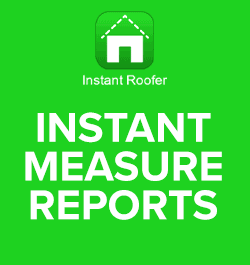California Adopts New COVID-19 Regulations

By Trent Cotney, Cotney Construction Law.
California business owners need to be aware of new COVID-19 standards that went into effect on Monday, November 30, and will remain in effect for at least 180 days.
The board that advises California’s Division of Occupational Safety and Health (Cal/OSHA) voted on these temporary regulations on November 19, and employers must immediately set policies to ensure compliance.
According to the new standards, many responsibilities fall to employers. They must provide face coverings and other personal protective equipment (PPE) at no cost to employees. They must also offer free on-site testing to employees in the event of an outbreak.
These new regulations require most California employers to produce an accessible and easy-to-understand COVID-19 Prevention Plan that fulfills the following criteria.
Clear communication
-
Create a communication plan that includes notifying employees of COVID-19 cases
-
Set policies for accommodating workers who are at high risk and explain what those risk factors are
-
Offer information about contact tracing and testing
-
Provide information about COVID-19 hazards
Risk assessment and prevention
-
Using input from employees, identify any workplace COVID-19 hazards and correct them
-
Provide infectious disease training and instruction, including information about handwashing, using hand sanitizer, surface disinfecting, airborne transmission and understanding symptoms
-
Improve workplace ventilation and increase airflow from outdoors
-
Provide face coverings to employees, enforce use and indicate what workers can be exempt
-
Require social distancing for employees, utilizing signs and other visual cues on the worksite
-
Employ the use of partitions and other barriers between employees
-
Allow remote work and staggered work hours to reduce contact
-
Regularly inspect workplaces to pinpoint unhealthy conditions and practices
-
For employers who provide transportation, screen workers before entering the vehicles, require masks, and have them sit at least three feet apart
-
For employers who provide housing, eliminate the use of bunk beds, place beds six feet apart and disinfect the space every day
Investigation and esponse
-
Create a process for identifying and verifying cases of COVID-19
-
Alert employees about COVID-19 cases without identifying those with positive test results
-
Determine when symptoms began and inform employees who were exposed
-
Investigate whether any work conditions contributed to new cases
-
Keep all medical records confidential
-
Prohibit workers who have tested positive for COVID-19, and those who have been exposed, from returning to work until their quarantines end
-
Set guidelines for returning to work after illness or exposure
-
Report COVID-19 outbreaks to the public health department (three or more cases in two weeks is considered an outbreak) and provide free ongoing on-site testing to employees (20 or more cases in 30 days requires the provision of testing twice a week)
-
Pay employees during their illnesses and quarantines
This last item, which states that employees should be paid during illnesses and quarantines, is of particular note. Employers are required to maintain workers’ seniority, earnings and other benefits while they are excluded from work. This policy is essentially an additional paid leave, which is separate from allowances stipulated in California’s COVID-19 supplemental paid sick leave laws, California’s Healthy Workplace Healthy Family Act, and the Federal Families First Coronavirus Response Act.
California becomes the third state to implement emergency COVID-19 standards for workplaces. Virginia adopted statewide regulations in July, and Oregon enacted new measures in mid-November.
Although labor advocates requested COVID-specific standards in May, Cal/OSHA did not vote on the issue until September. The first draft was completed in November. Workers who spoke before the board before the November 19 vote expressed concerns about their safety. Many told stories of being exposed to coworkers with the virus and not being aware; not having access to PPE; and not receiving social distancing accommodations. Business owners agreed that regulations were needed but argued that they needed more clarity, in addition to more time to implement the standards.
Now employers will need to scramble to ensure that they are following the new directives. Most have likely already implemented some of these regulations, but it is critical that they review all the requirements, communicate with employees, and analyze their workspaces.
Depending on the company’s size and the seriousness of the violations, Cal/OSHA can enforce these new standards through civil penalties. Although the standards are currently in effect for 180 days, that timeframe can be extended for 14 months.
Contact Cotney Construction Law for additional information.
Download the ebook now and learn how you may reduce your liability. For more information, or visit www.cotneycl.com.
Learn more about Cotney Construction Law in their RoofersCoffeeShop® Directory.
Disclaimer: The information contained in this article is for general educational information only. This information does not constitute legal advice, is not intended to constitute legal advice, nor should it be relied upon as legal advice for your specific factual pattern or situation.
Cotney Construction Law is an advocate for the roofing industry and General Counsel of NRCA. For more information or to contact the author, go to www.cotneycl.com or call 866.303.5868.























Comments
Leave a Reply
Have an account? Login to leave a comment!
Sign In